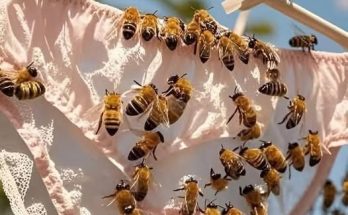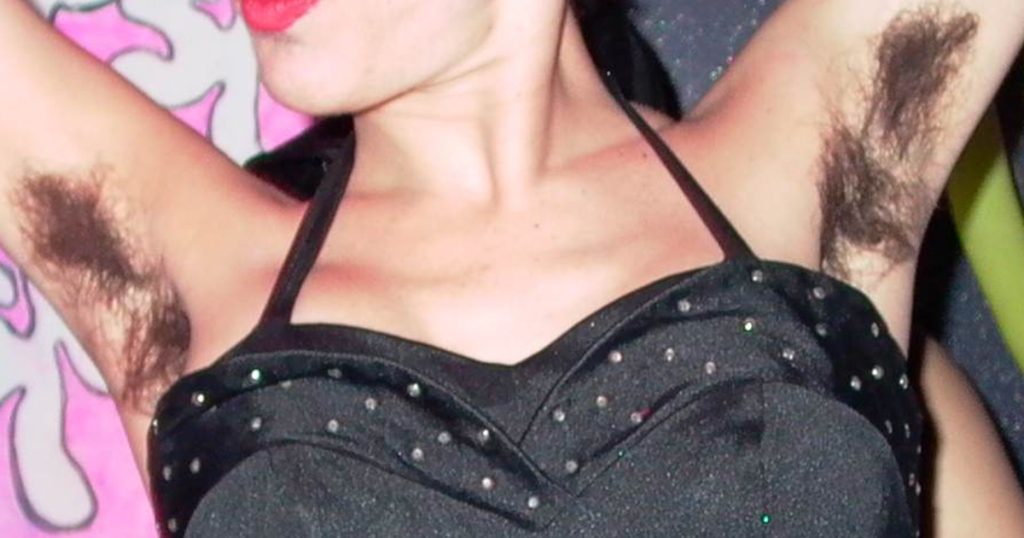
In an era increasingly focused on authenticity and inclusivity, a growing number of artists, activists, and individuals are challenging outdated beauty ideals. Among them is a London-based photographer whose ongoing project, Natural Beauty, has stirred conversation across social platforms by confronting long-held taboos about female body hair, particularly armpit hair.
The series, launched by Ben Hopper, is a bold, visually striking collection of portraits that aims to reframe perceptions of feminine beauty. Rather than promote a specific look, the goal is to invite dialogue, offering viewers a fresh lens through which to explore their own biases, social conditioning, and relationship with personal grooming.
A Look Back: The Cultural History of Body Hair Removal
The cultural practice of body hair removal, especially for women, dates back thousands of years. According to anthropologists, early humans used stone tools, seashells, or pumice stones to remove hair as part of hygiene and ritual practices. In ancient Egypt and Rome, hairlessness was often associated with social status, cleanliness, and attractiveness.
By the 20th century, especially in Western societies, the removal of underarm and leg hair became normalized through advertising and fashion trends. The widespread availability of safety razors and the rise of sleeveless garments prompted beauty companies to promote smooth, hairless skin as essential for femininity.
“Hair removal is now an expectation for many women, rather than a personal choice,” says Heather Widdows, professor of philosophy and author of Perfect Me: Beauty as an Ethical Ideal. “It’s seen as a beauty duty, not an option.”
Source: CNN
A Visual Statement: The “Natural Beauty” Project
Ben Hopper’s Natural Beauty photo series, which he began developing in 2007, presents a striking juxtaposition: elegant, fashion-forward images of women paired with their unshaven underarms. The contrast is intentional. As Hopper explained in an interview with The Huffington Post, the goal is to challenge audiences to rethink their assumptions about hygiene, femininity, and societal norms.
“The project isn’t about telling people to stop shaving,” Hopper said. “It’s about expanding the definition of beauty and encouraging people to question why body hair—especially on women—is often seen as undesirable.”
Source: The Huffington Post
The black-and-white images evoke both intimacy and strength, encouraging viewers to reconsider what natural, empowered beauty looks like—beyond commercially curated standards.

Diverse Perspectives: Voices Behind the Lens
The women featured in Natural Beauty share a range of experiences and motivations. Some speak of liberation and empowerment, while others emphasize the desire to feel comfortable without needing to conform.
- Kyotocat, a model in the series, shared: “I felt so relieved and free when I let it grow out. It felt like being able to breathe.”
- Sophie Rose reflected: “It’s empowering to not hide. You feel stronger for not giving in to the way you’ve been told to be.”
- Gabriela Eva, who grew her armpit hair specifically for the shoot, said: “It made me feel vulnerable at first, but eventually empowered.”
While reactions from the models varied, a common theme emerged: the process of unlearning societal conditioning and embracing body autonomy.
Source: Natural Beauty by Ben Hopper
Not Just a Political Statement
While some interpret growing body hair as a form of resistance against patriarchal standards, several participants emphasized that their choices were deeply personal, not necessarily political.
- Sienna, one of the models, noted: “I don’t think women refusing to shave should automatically be seen as a radical act. I just want to feel comfortable.”
- Emilie Bodstdt, a Swedish actor, wrote: “It’s strange that something so natural—like growing your armpit hair—can be seen as controversial. That’s why I choose to grow it.”
This perspective reflects a broader cultural shift toward recognizing that personal grooming is a choice, not a mandate. As scholars in gender studies note, the pressure to conform to beauty standards often disproportionately affects women and can impact self-esteem, body image, and even mental health.
Source: Journal of Gender Studies
Public Response and Ongoing Conversations
The Natural Beauty project has received both support and criticism online, illustrating the deeply ingrained nature of societal beauty standards. On platforms like Instagram and Twitter, many users praised the images for their raw honesty, while others expressed discomfort—underscoring the cultural taboo still associated with visible female body hair.
Despite varied reactions, Hopper remains committed to his mission: not to impose a new standard, but to open space for dialogue and challenge conformity.
“I’m not asking women to grow their body hair,” he clarified. “I just want people to question why the norm is what it is—and whether it has to be.”
Source: Ben Hopper Official Site
A Shift in Mainstream Attitudes?
In recent years, more public figures and brands have embraced natural body hair as part of their messaging on inclusivity. Celebrities like Amandla Stenberg, Madonna, and Lourdes Leon have appeared in public and editorial shoots without shaving, sparking media conversations.
Major fashion brands, including Billie and Veet, have also begun to feature models with visible body hair in ad campaigns, signaling a shift toward body-positive representation.
“Beauty standards are not fixed. They evolve with culture and conversation,” says Dr. Renee Engeln, a professor of psychology at Northwestern University. “The more we challenge narrow definitions of beauty, the more space we create for self-acceptance.”
Source: American Psychological Association
Redefining Beauty, One Image at a Time
As more individuals and artists embrace the diversity of human bodies, projects like Natural Beauty play a vital role in sparking reflection and change. Whether it’s a personal decision to shave or not, the growing cultural emphasis is on choice, respect, and inclusivity.
The conversation around female body hair is just one part of a broader movement toward authenticity in beauty, where natural variation is celebrated rather than corrected.
“What matters is that we normalize choice,” said Hopper. “Beauty doesn’t have to look one way.”
Conclusion
Natural Beauty is more than a photo series—it’s a statement about freedom of expression, body autonomy, and redefining norms that have long been treated as unquestionable. By challenging traditional ideas of what it means to be “beautiful,” this project invites a deeper dialogue about the role of culture, media, and self-image in shaping our perceptions.
As society continues to expand its understanding of body positivity, one thing becomes clear: true beauty is as diverse and individual as the people who define it.
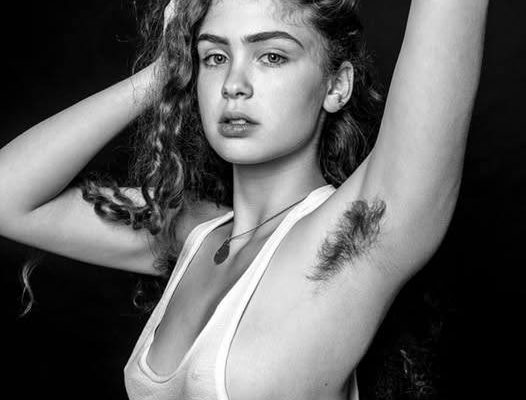

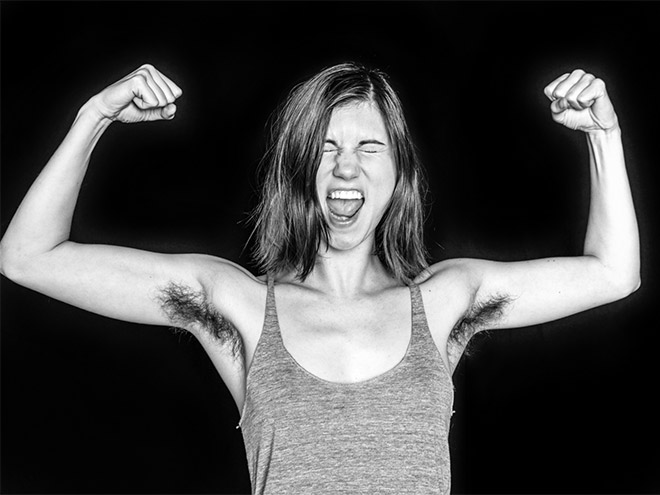
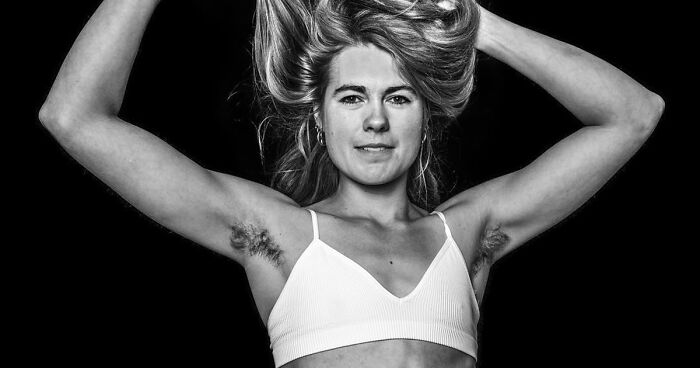
:quality(85):upscale()/2017/02/16/604/n/29590734/e8d8460458a5a986aaaa89.32383884_edit_img_facebook_post_image_file_17064855_1487243383.jpg)

